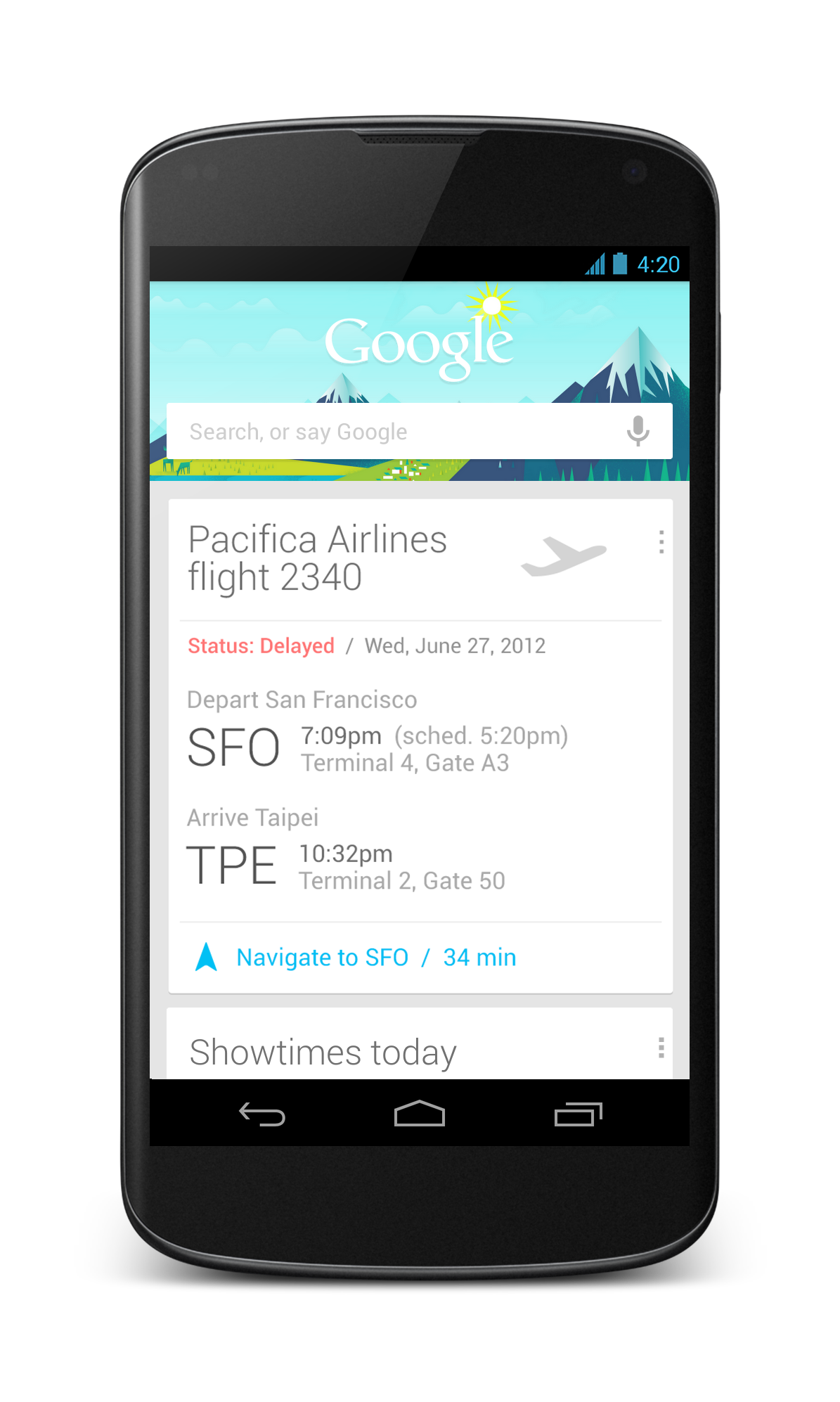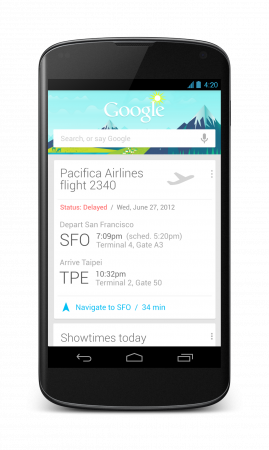In the United States, both the Nexus S and the Galaxy Nexus were sold in 4G versions for the networks that supported the technology, but with the announcement of the Nexus 4 today, many people were left wondering why Google seem to have back-pedaled and failed to offer a 4G version of their new flagship. After all, even the latest iPhone has LTE.
When the Nexus One was released, Google intended to sell it only via its web store. Carriers, particularly those in America, exercise a lot of control over the phones on their network, filling them with bloatware and never releasing updates. The Nexus was intended to circumvent the carrier’s demands and provide users with the pure Android experience. Unfortunately, the Nexus One (and subsequent Nexus phones) did not sell well, and Google was forced to make deals with the carriers in order to get its phones into the hands of Android enthusiasts. In Australia, the Nexus line was distributed through Vodafone originally, and the Galaxy Nexus was available on Telstra and Optus as well.
Unlike the two most recent Nexus phones, and for the first time in Australia, Google are selling the Nexus 4 directly to consumers through the Play Store, unlocked for a paltry $399 (to compare, the cheapest iPhone costs $799 outright). The Nexus 7 was also ridiculously underpriced, a factor which contributed to its enormous success. Google wants to get Nexus devices into as many hands as possible and so it wants to make them as appealing as possible. For Google to reach the low price point that they did, they had to make some concessions, and considering that the Nexus 4 is about as high-specced as a phone can get, LTE had to go.
LTE is still a new technology. In Australia, only Telstra and Optus have LTE networks (although Vodafone plans to introduce an LTE network early next year), and even in Melbourne, Telstra’s 4G network only extends 10 km from the city centre. Internationally, most of the larger carriers are at similar stages of development with their own LTE networks, but owing to a number of factors, there are significant interoperability issues between the different networks, requiring OEMs to create different versions of their handset for different markets. This is an expensive exercise, and unless there is a huge potential market to be exploited, or someone else funds it, the development of multiple (almost) identical devices just isn’t going to happen.
Compare this with 3G (UMTS/HSPA), a well-established technology with a high degree of interoperability (outside of the United States, anyway), which is almost universal in its compatibility. You can buy an unlocked 3G handset in Australia and use it almost anywhere in the world with any SIM card you like. It’s awesome. By sticking to 3G, Google can create one device for the entire world, thus minimising its R&D costs, and passing the savings onto you. Andy Rubin, said it himself: ‘Tactically, we want to make sure the devices are available for every network on the planet’. Without carrier involvement, this just wasn’t going to happen with LTE, and Google can’t guarantee the pure Nexus experience if the carriers put their hands in the pie.
Basically, it comes down to cost.






While I understand how people are complaining about no LTE, what about the 33.73 million T-Mobile customers who can’t get LTE anyways? If Google sells 30 million Nexus 4’s, it’ll be doing better than a lot of dedicated phone companies. And tbh, the Nexus 4 (either unlocked or on contract) is the best android phone available on T-Mobile (don’t want to start an iPhone vs Android flame war) by far, irrespective of price. With the low price considered, its a must buy for me (T-Mobile customer). With $30/month unlimited HSPA+ and texting prepaid, I’m a happy camper.
I understand for some of you LTE isn’t a “must have” and that it’s only available in limited areas. For those of us who live and work in inner Sydney though it’s definitely a must have. Once you’ve been using 4G for a little while and have to go back to 3G you really notice the difference. With no 4G the Nexus 4 really is dead in the water for me.
…F the US carriers , what about the ‘rest of the world’ ? , according to sony the unreleased Xperia V will support: LTE Band I, Band III, Bandv V, Band VII and Band XX.
That should give the N4 access to a good amount of International customers! , sure would cost more but for those who want it….
About this hspa+ 42mbs that they have up on their site is that DC-HSPA+? i know telstra has that but does Optus? and what sort of speeds do you get in real world?
I’m sure they wil come with a lte model and 32 gb version soon….like nexus 7 now available with 3g and 32 gb.
Sorry to be slightly off topic, but it does relate to data usage. Having only 16GB, and no microSD make poor design for multimedia users. Retrieving data off cloud is slow, inefficient and costly! Slightly more on topic, at least they should have put dc hsdpa instead of hsdpa+.
I will just keep my GALAXY NEXUS, which has LTE…… When I UPGRADE to the next device, I want a better device with MORE features, not LESS… My G-Nex is awesome!
No sd card expansion no LTE. Another attempted failure by google.
My Samsung galaxy s2 4g on telstra only lasts a few hours when in 4g mode so really untill battery technology improves its just a marketing strategy.
Heck, it is awesome device. Outstanding price. I am sold, getting more android into the hands of people usually brainwashed as iclones is a nice footnote..
Nexus arnt a flagship device as much as people want to say it. They are upper mid range. 4G is not essential at this stage and the trade off in battery to have it is not worth it in my opinion. How often are people downloading/streaming huge files on the go to warrant LTE? Streaming video (sd) and music works fine on 3G from my experience. Using LTE isnt that fantastic either as you often have to wait sometimes up to a minute for the phone to connect to the service when entering range. Until its got significantly more coverage… Read more »
Even if the US (Masters of the Universe, apparently) Nexus 4 got LTE there’s no guarantee that we will get it here in Australia. It would still be up to the Carriers. But let’s not get ahead of ourselves. There is still a good chance that we will see an LTE variant in the near future. Historically there is already precedent for this. Also, I believe the Qualcomm chip inside lends itself to easy manipulation should the Aussie carriers want to bring out a 4G version. Either way, I’m not jumping on 4G until it has equivalent or better battery… Read more »
The crux is that to support LTE in the US you must go via the carriers (there’s no other option) and you then have to produce 3 or 4 versions of the device to support the different LTE standards on the US carriers and worldwide. You also have to lock the device — completely against what the Nexus is designed to be. Apple can support LTE, as with huge sales of a single device they plenty of leverage with carriers to force through software updates and enough sales to justify having the different model variants. In Google’s wildest dreams they… Read more »
Also the carriers said if its unlocked it can’t have lte http://wp.me/p255Vf-1sx
I appreciate the reasoning but am not satisfied with it. The Nexus brand is meant to represent what Android is capable of. The Nexus 4 as is represents a middling at best. 4G may be young but it is active and a major factor selling point for devices. To not offer it at least in a premium version is short sighted by Google. Many users will hold off until Google corrects this error or buy one of the alternate offerings that include 4G. I understand and have accepted the arguments for no external storage card. I feel the option should… Read more »
I agree, they should offer the option for LTE and more storage if you want to pay more for a premium model.
I’d be happy enough with the storage limitations if Google Music was properly supported in Australia. The whole point of limiting the storage is to get people’s data “on the cloud”, but with no LTE and no support for Google Music … it doesn’t make all that much sense.
Google Music is hitting Europe very soon, so hopefully we won’t have to wait much longer. All my music in Google Music with a 16GB local cache would suit me fine.
it also comes down to lte spectrum in america, as well as verizon requiring cdma in conjunction with lte. too many radios….